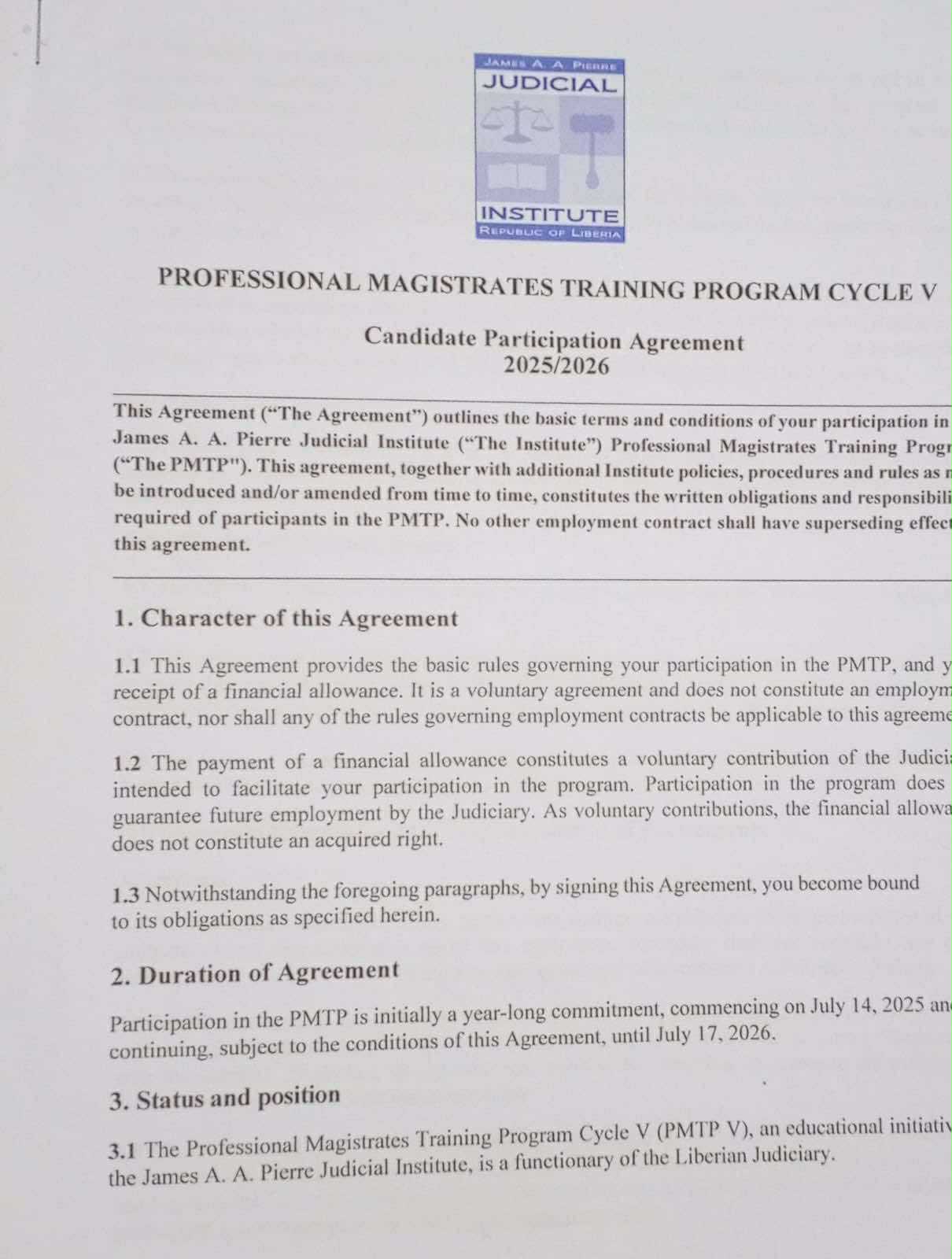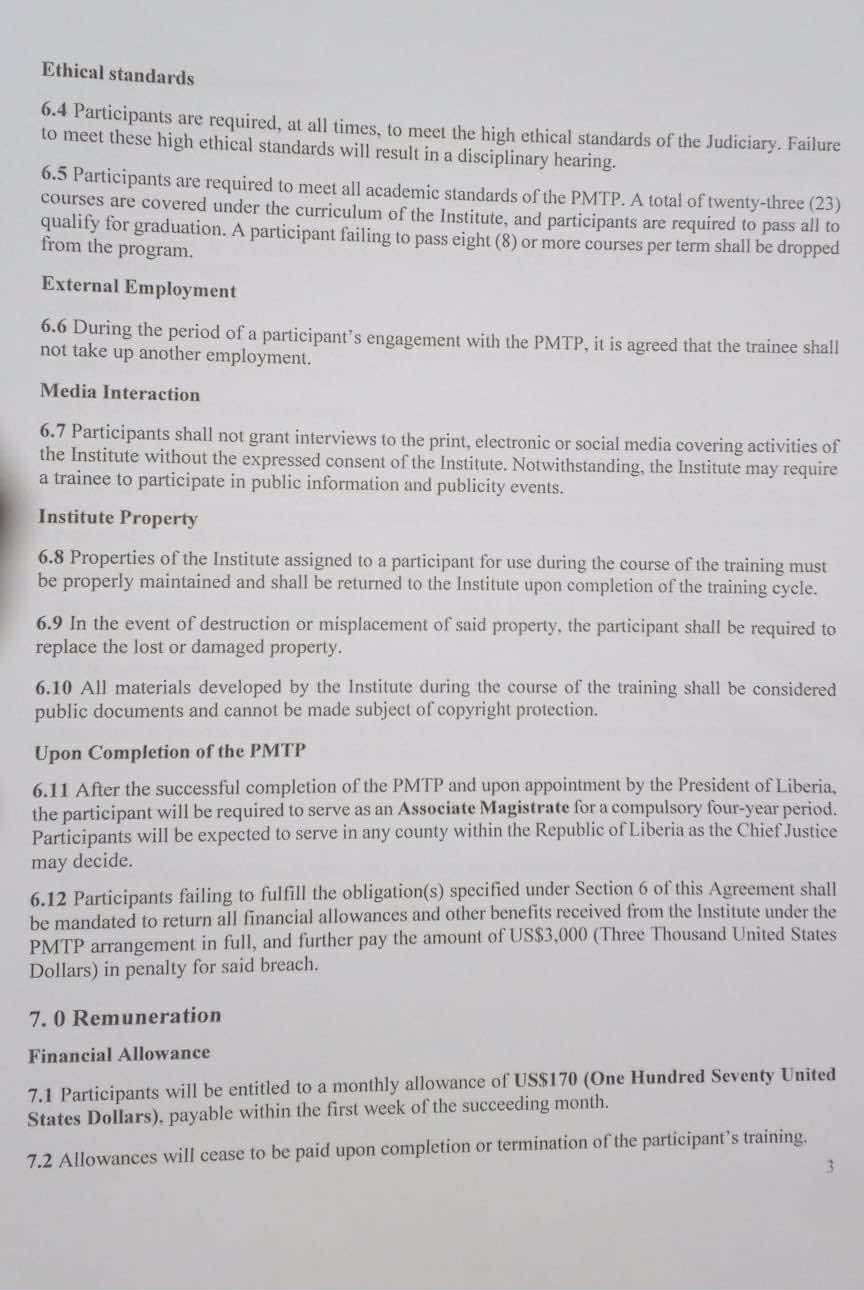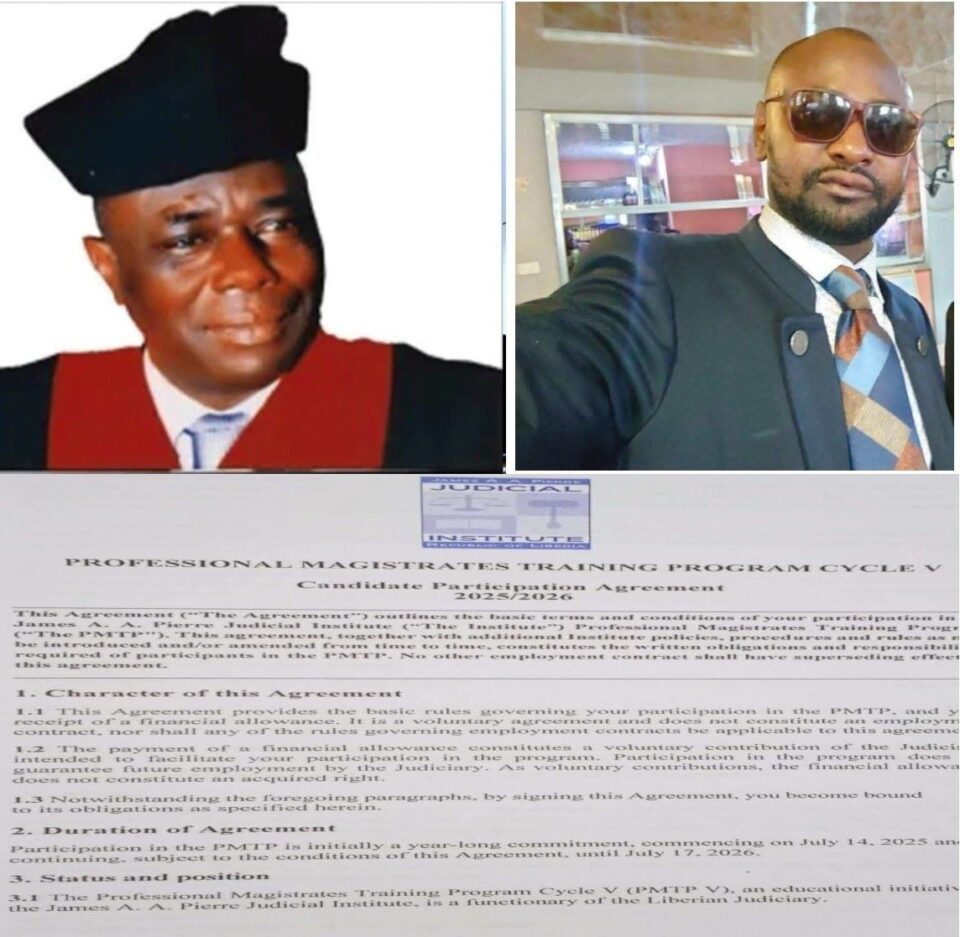Describing Them As “Hypocrites”, While Justifying Appointments Of His Son, Others As Associate Magistrates, Without Legal Qualification
PHOTO: (L-R) Chief Justice Yamie Gbeisay and his newly appointed son, Wlleyon Y. Gbeisay
By Our Staff Writer
“If my son cannot serve, resign,” If you, your husband and brother in law are serving in the government, how much about my son?
VOINJAMA, Lofa County, Liberia- Following a recent communication dated, to the Chief Justice in which the trial judges pointed out none lawyers serving as Associate Magistrates, Chief Justice Yamie Quiqui Gbeisay has harshly reacted to the trial Judges’ communication, describing its leader as hypocrite.
In a recent statement, Chief Justice Yammie Quiqui Gbeisay of the Republic of Liberia has defended the president’s authority to appoint his son as an Associate Magistrate, sparking huge debate in the legal community, local news outlets and Social Media, and raising questions about the standards for judicial appointments.
In their letter to the Chief Justice dated September 23rd, 2025 and signed by the Trial Judges Association’s President, Judge Nancy Finda Sammy, they said the recent move by Justice Gbeisay ran counter to an earlier pronouncement made by him which “raises a critical question: if appointments can bypass the legal recruitment and training process,” Trial Judges Assoc. Takes Chief Justice Gbiesay To Task For Appointing His Son, Others As Magistrate With No Legal Education – News Public Trust
Chief Justice Gbeisay arrived in Vionjama City, Lofa County on Thursday September 25,2025 and held a meeting with trial judges including Judicial actors on Friday September 26,2025.
“If my son cannot serve, resign,” If you, your husband and brother-in-law are serving in the government, how much about my son?
“I will resign if trial judges show me any law that says, the president cannot non lawyers as Associate magistrates” I challenge the trial judges now.

I did nothing wrong and similarly, the president Chief Justice continued his defense.
“It is unfortunate that judges who supposed to be interpreting the law will not understand this elementary principle interpretation of the law” Chief Justice stated.
The chief Justice son Willieyon Y. Gbeisay was one of those nine lawyers recently appointed by president Joseph Nyumah Boakai.
Defending his recommendation and subsequent appointment by the president, Justice Gbeisay said, when it comes to appointing associate magistrates, the law is silent stating that the law does not give it holds.
He further justified that his son is of age, a Liberian and a law school student who is fix and qualified for the job.

More of the participants agreement to be published later
He claimed that the law did not say that an associate magistrates should be a law school graduates adding that there are people who are still serving as magistrates and they are not high school graduates but still on the judiciary pay roll.
“Appointing law school students has been going on since he been practicing law for the past 27 years” he stated.
Continuing his blasting at the trial judges particularly their leader judge Nancy Finda Sammy, he stated saying, “one who live in a glass house cannot throw stones”
The Chief Justice’s remarks follow a communication dated September 25, 2025 authored by Judge Nancy Finda Sammy, President of the National Association of Trial Judges of Liberia (NATJL), which criticized the president’s decision to appoint non-lawyers to positions typically reserved for those with legal qualifications. Judge Sammy applauded the Supreme Court’s commitment to encouraging law students to pursue legal education but expressed concern over appointments that could undermine professional standards.
In her communication to the Chief Justice, Sammy questioned the credibility of the legal recruitment process if such appointments were permissible. She stated, “If appointments can bypass the legal recruitment and training process, then what becomes of the necessity and credibility of the Law School and the Judicial Institute—and of those presently undergoing legal training?”
In response, Chief Justice Gbeisay emphasized that the Liberian Constitution grants the president the authority to appoint all presidential appointees without needing external advice. He specifically noted that while justices and associate justices of the Supreme Court are expected to hold law degrees, the same requirement does not necessarily apply to Associate Magistrates. “There is no law that mandates an Associate Magistrate must graduate from law school,” he argued. “If such a law existed, then why do we allow high school graduates to serve as Associate Magistrates?”
Addressing concerns about his son’s appointment, Gbeisay stated that his son, currently a law student, possesses the qualifications necessary for the role, reinforcing his belief that there is nothing inappropriate about the president’s decision.
“I did not see anything wrong with that appointment,” he asserted, expressing disappointment in the NATJL’s response, which he labeled as hypocritical. “The president has the authority to appoint anybody as Associate Magistrate.”
This controversy raises essential questions about the integrity of the appointment process in Liberia’s judicial system and the future of legal education in the nation. The ramifications of such appointments may reverberate through the judicial community, impacting aspiring law professionals and the standards they strive to uphold.
As the debate over judicial appointments continues, the legal fraternity in Liberia remains on high alert, keenly observing how these developments will shape the landscape of justice in the country, while some analysts are raising question of nepotism.

